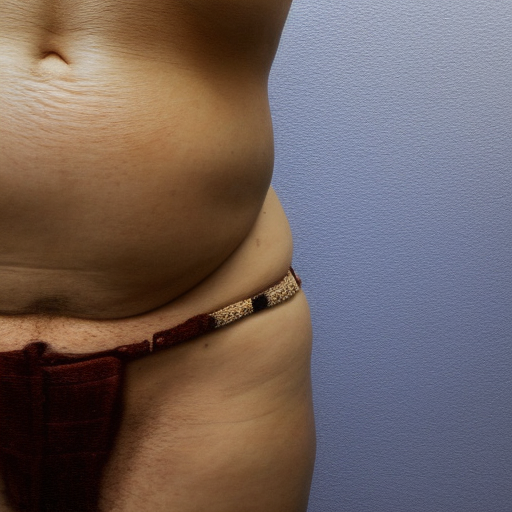How long does it take to recover from an overdose
As someone who has struggled with addiction, you know all too well the dangerous consequences that can come with using drugs or alcohol. And while you may have had close calls before, nothing can prepare you for the fear and panic that sets in when you realize you’ve overdosed.
In the moments following an overdose, the question on everyone’s mind is the same: How long does it take to recover from an overdose?
The truth is, the length of recovery from an overdose can vary greatly depending on a number of factors, including the substance that was overdosed on, the severity of the overdose, and the individual’s overall health.
In this blog post, we’ll explore the various factors that can affect the recovery process after an overdose, as well as what you can expect during the recovery process and how to get the support you need.
What Factors Affect the Length of Recovery from an Overdose?
One of the main factors that can affect the length of recovery from an overdose is the substance that was overdosed on. Different substances can have different effects on the body and can require different treatments to address the overdose.
For example, an overdose on opioids, such as prescription painkillers or heroin, can be life-threatening and may require immediate medical intervention, including the use of medications like naloxone to reverse the overdose. Recovery from an opioid overdose may also involve addressing withdrawal symptoms, which can be uncomfortable and last for several days or even weeks.
On the other hand, an overdose on stimulants, such as amphetamines or cocaine, can cause rapid heartbeat, high blood pressure, and increased body temperature, which can lead to organ damage if left untreated. Recovery from a stimulant overdose may involve addressing these physical symptoms and providing supportive care until the substance is fully metabolized and cleared from the body.
The severity of the overdose can also affect the length of recovery. A mild overdose may require only basic supportive care, such as fluids and rest, while a severe overdose may require more intensive treatment, such as hospitalization and medications to support organ function.
Finally, an individual’s overall health can also play a role in the recovery process. Someone who is in good physical health may recover more quickly from an overdose than someone who has underlying health conditions or a compromised immune system.
What Can You Expect During the Recovery Process?
The recovery process after an overdose can vary depending on the factors outlined above, but there are some general steps that you can expect to go through during the recovery process.
One of the first steps in the recovery process is seeking medical attention. If you are with someone who has overdosed, call 911 immediately. If you are alone and have overdosed, call for medical help as soon as possible. Getting medical attention as soon as possible can help to reduce the risks of serious complications or death from the overdose.
Once you have received medical attention, you can expect to go through a period of observation and monitoring. This may involve staying in the hospital for a period of time or being treated on an outpatient basis, depending on the severity of the overdose.
During this time, you may receive medications to help reverse the effects of the overdose, as well as medications to address any withdrawal symptoms or underlying health conditions. You may also receive supportive care, such as fluids and nutrition, to help your body recover from the overdose.
As you begin to recover, it’s important to follow the treatment plan recommended by your healthcare team. This may involve taking medications as prescribed, attending therapy or support group meetings, and making lifestyle changes to support your recovery.
How to Get the Support You Need
Recovering from an overdose can be a challenging and overwhelming process, and it’s important to remember that you don’t have to go through it alone. There are a number of resources and support systems available to help you on your journey to recovery.
One of the most important things you can do is to reach out to friends and loved ones for support. Sharing your struggles and experiences with others who care about you can be incredibly therapeutic and can help you feel less alone.
In addition to seeking support from friends and loved ones, there are also a number of professional resources available to help you recover from an overdose. These may include:
- Therapy: Working with a therapist or counselor can help you explore the underlying issues that may have contributed to your overdose and develop coping skills to prevent future overdoses.
- Support groups: Joining a support group can provide a sense of community and connection with others who are going through similar experiences. There are a number of different types of support groups available, including those specifically for people recovering from an overdose.
- Rehabilitation programs: Rehabilitation programs can provide structured support and treatment to help you recover from an overdose. These programs may involve inpatient or outpatient treatment and may include a variety of therapies and support services.
- Medications: In some cases, medications may be used to help prevent future overdoses or to address underlying mental health conditions that may have contributed to the overdose.
No matter what type of support you choose, it’s important to remember that recovery is a journey and it’s okay to take things one step at a time. It’s also important to be patient with yourself and recognize that recovery can be a long and challenging process.
Conclusion
Recovering from an overdose can be a difficult and overwhelming process, but it’s important to remember that there is hope and support available. By seeking medical attention, following a treatment plan, and seeking out support from friends, loved ones, and professional resources, you can take the first steps towards a healthy and sober life. Remember, recovery is a journey and it’s okay to take things one step at a time. So, how long does it take to recover from an overdose? The length of recovery can vary depending on a number of factors, but with the right support and treatment, it is possible to make a full recovery and move forward with a healthy and sober life.





